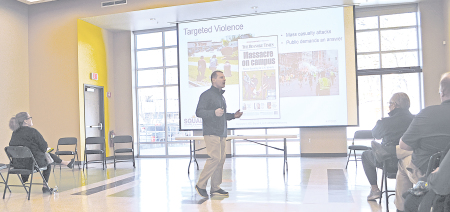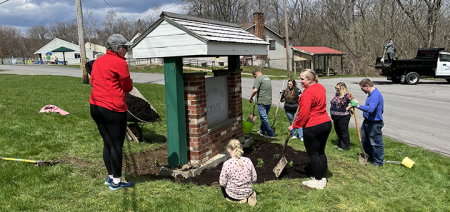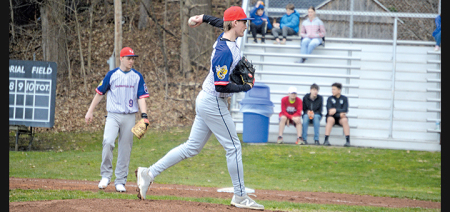Tilting At Windmills: Becoming (and Staying) A Writer
Published:
November 18th, 2022
By:
Shelly Reuben

I recently finished writing a novel. It is an arson mystery called DOE EYES, and I like it a lot. After dotting the last “i” and scribbling THE END on the final page, the next item on my agenda was to send out query letters. For those not in the know, a “query letter” is a missive that provides an author’s credentials; a plot synopsis; a list of potential markets; a projected audience; the word count, etc., to literary agents who list themselves as “Open to Inquiries.”
This procedure is pretty much the same as it was about a million years ago, when I was trying to sell my first mystery, JULIAN SOLO. My quest then was painful, fatiguing, and frustrating (rejection is no fun). Eventually, however, it was rewarding, as my book was accepted by RLR Associates Literary Agency, with whom I remained until they closed up shop. JULIAN SOLO was also nominated for an Edgar Award by the Mystery Writers of American, and it set the stage for my happy marriage to RLR for over twenty years.
Now, however, I am back to square one ... trying to find a literary agent in a shrinking publishing market, where there are less publishers, less bookstores, more competition, and less books.
Which got me to thinking about my early days, before I became a writer, when I was seventeen-years-old, working part-time jobs after school, devouring novels by John Steinbeck, Charles Dickens, O. Henry, and William Saroyan, and just enjoying being me.
All of my classmates at that time, however, were eagerly deciding what they wanted to do with their lives. After hearing, first one and then another, chatting about which colleges they planned to attend, while exclaiming, “I want to be a “doctor” or “a lawyer” or “a teacher” or “a Broadway musical star,” I realized that I, too, ought probably to be deciding upon a career.
So (visualize Rodin’s statue of The Thinker), I hunkered down and asked myself to what I could dedicate 90,000 hours (approximately one-third, according to statisticians) of my working life?
The next question that popped into my mind was, “Okay. So what do I love most to do?”
I responded, “Read. There is nothing I would rather do than read.”
And that answered all further questions about a potential career. The best way (I figured) that I could spend the rest of my life reading ... was to become a writer.
Excellent.
Decision made.
Now what? How does a seventeen-year-old who had never kept a diary, written in a journal, or attempted to write a novel or a play, evolve from reading stories to writing them?
I had no clue.
I started by equipping myself with legal pads and number 2 pencils, sitting at a desk, and gazing at an empty page. But nothing came to me. Absolutely nothing. I had recently gone to an amusement park with friends, so I said to myself, “Self. Make up a story about people at an amusement park.” I tried, but it was as if my brain had leaden feet. My story would not take off. I could not invent. I could not envision. I could not make-believe. I then tried to put my real friends into circumstances that did not exist. Whimsical, fantastical, adventurous, and exciting circumstances that relied upon characters from real life.
That didn’t work either. My mind was a blimp filled with sand instead of helium, and it stubbornly clung to earth.
What to do? What to do?
Other than the authors whose work I loved, I had no one to teach me. And imitating them was beyond my capabilities, as I had not even mastered the skills to write a “Tuggy the Tugboat” let alone an adult novel.
Again...what to do? What to do?
Finally, I hit upon an idea. My parents had this huge, 2nd Edition, Webster’s International Dictionary, with over 3,209 pages containing definitions for over 470,000 words. A treasure trove.
Webster, I decided, would teach me how to write.
I lifted it (like carrying a baby elephant) off its dictionary stand, and thumped it down on my desk. I knew I would have to start with a small, manageable goal – something to banish my fear of fantasy, to teach my mind how to create, and to transport the leaden feet of my imagination to an effervescent, luminous, and airborne cloud.
I closed my eyes. I opened the dictionary. I stuck out my forefinger. I dropped it down on a word. It could be any word: Popcorn. Crowbar. Rhapsody. Sharecropper. Cistern. Locomotive. Anything. And regardless of where my finger landed, I would FORCE myself to create a little story around the nugget of that word.
After all these years, I can still remember a few. One time, my finger landed on “railroad crossing,” and I wrote a vignette about a woman, lost in thought, who is walking forward, does not hear the clanging bells or see the flashing lights of a descending gate, and never realizes that it missed hitting her head by a fraction of an inch, as she proceeded along the way.
Another – the word had been “scarf” – was about a very old, decrepit woman, shuffling along the sidewalk with no light in her eyes and no hope in her heart, wearing a beautiful bright headscarf, across which were excitedly splashed the words “Paris!” “London!” “Hong Kong!” “Lisbon!” and “Rome!”
I remember creating other vignettes about an escalator, a Ferris wheel, and a revolving door. They probably still exist at the bottom of a trunk somewhere in my closet. But none of them ever went any farther than setting a stage. Creating a character. Suggesting the lift-off point for a situation that, with the proper amount of effort, thought, and preparation, could be the beginning, middle, and end of a story. A story!
What a thrill! What an achievement!
And so, word by word, with my little forefinger and my big dictionary, I taught myself how to leave earth. I taught myself how to inhabit a character. How to create. I developed my imagination.
I know that most authors learn how to write in more conventional ways. In colleges or at seminars or during courses given specifically for that purpose. For me, though, I had no teachers but my favorite writers, my Webster’s Dictionary, my capricious forefinger, and my relentless determination.
Years after I sold my first book, I read a passage in Leon Uris’s novel QB VII. It comes at a point in the narrative where Abraham Cady, a successful author, is asked to address eager university students about his literary career. He walks to the podium, looks out upon a filled-to-capacity auditorium, and asks “Who here wants to be a writer?”
Everyone in the room raises their hands. Cady then barks out, “Why the hell aren’t you home writing?” And then he stalks off the stage. A little harsh, I admit. But I always loved that sequence in the book. And I loved what Abraham Cady said and did.
As I embark, again, upon the arduous task of finding a literary agent, my mind has thrust me back to my beginnings. To the days when I wanted to write, and could not, but taught myself that seemingly impossible task. Having learned it, I have gone to places I have never been, become people I am not, said things I would never say, and done things I will never do. That is the good part. The great part. The deliriously joyful part … the part that exemplifes the rewards I receive for having learned my craft.
The tough part is sending out yet another (I’m grimacing) query letter to yet another (my eyes are rolling) literary agent. All part and parcel of doing what one has to do.
If one wants to be a published author.
Copyright © Shelly Reuben, 2022. Shelly Reuben’s books have been nominated for Edgar, Prometheus, and Falcon awards. For more about her writing, visit www.shellyreuben.com
Author: Shelly Reuben - More From This Author
Comments








